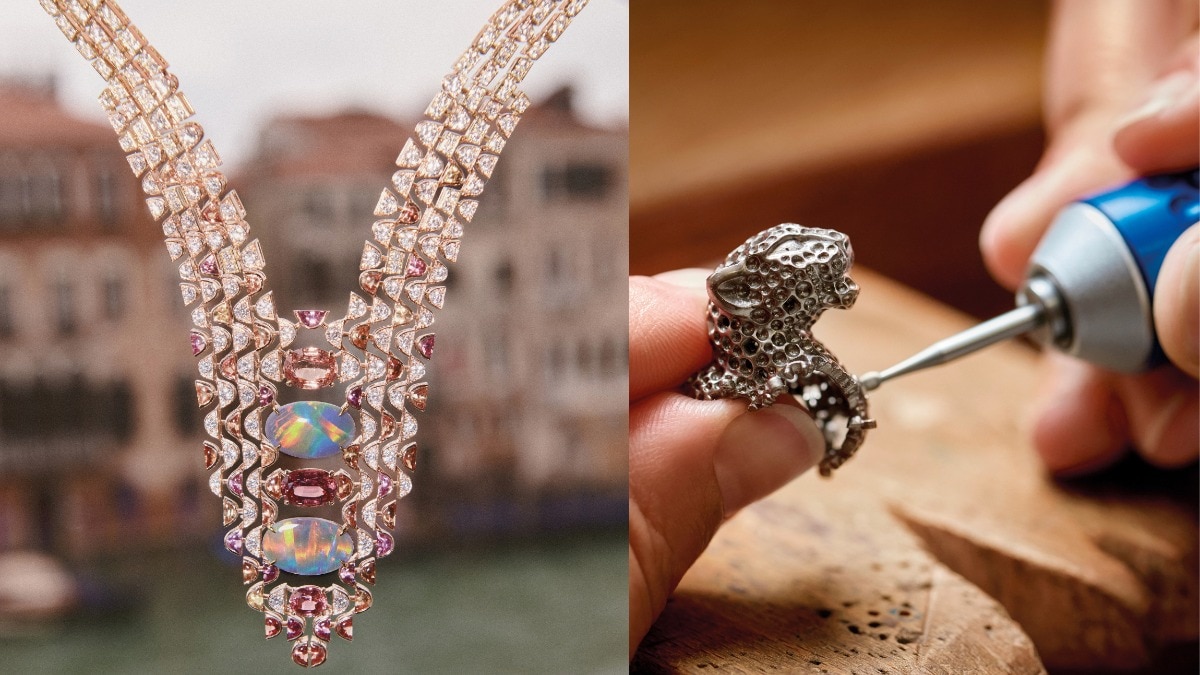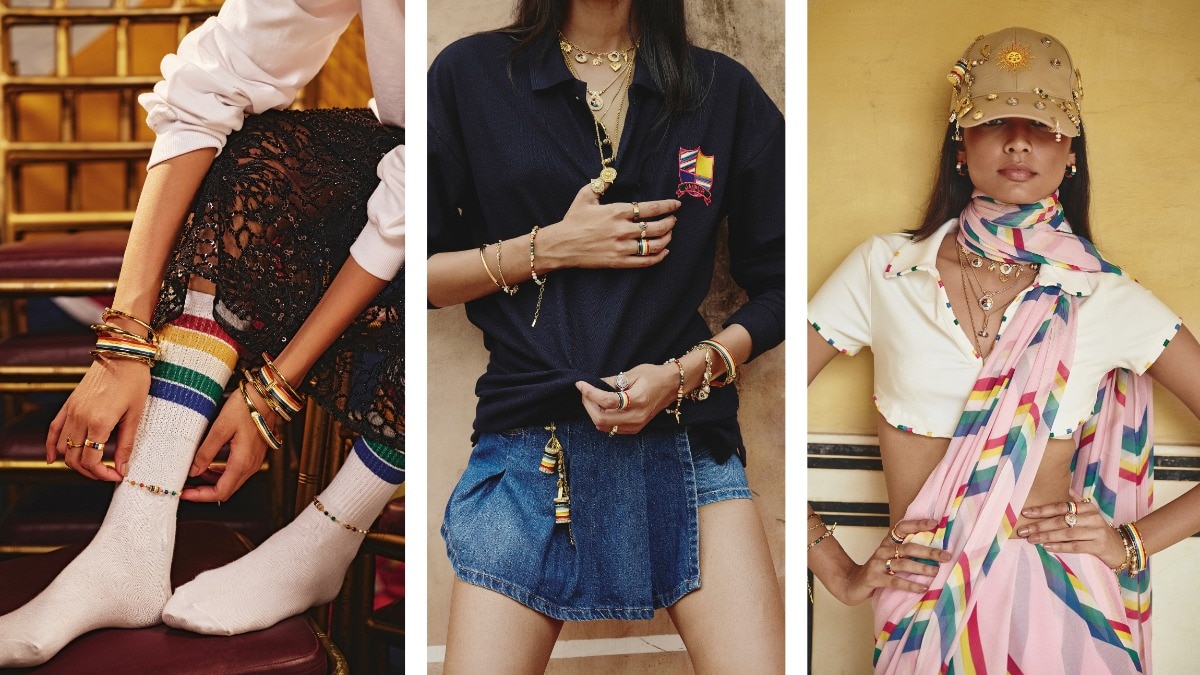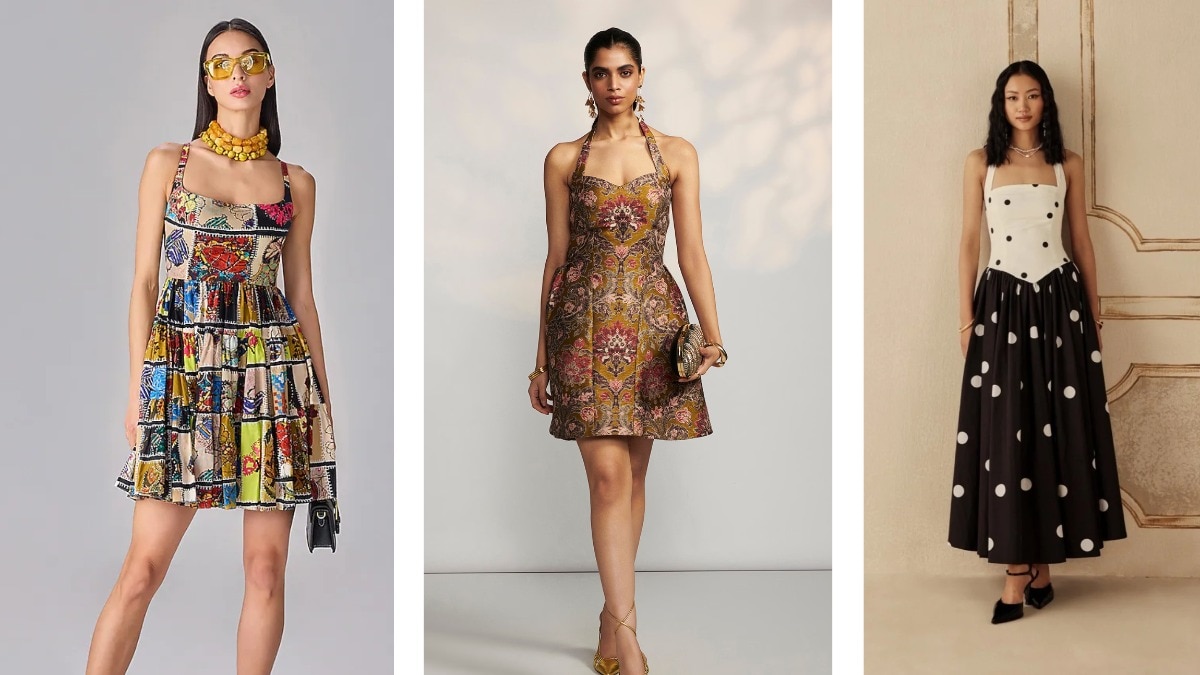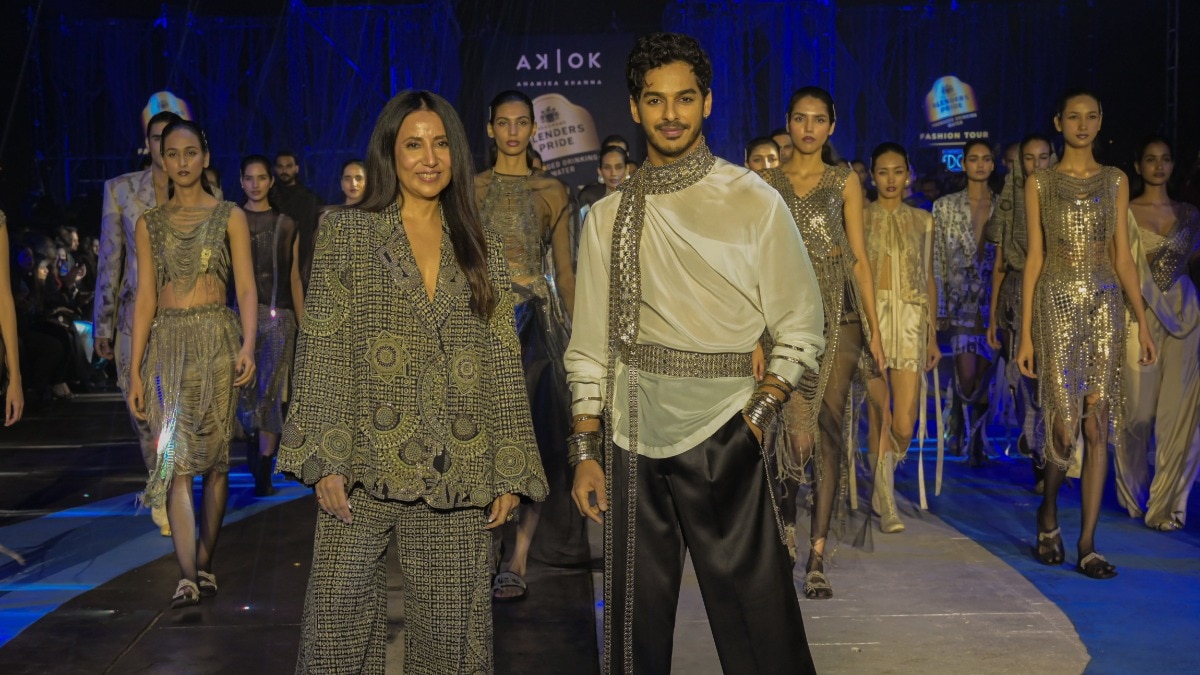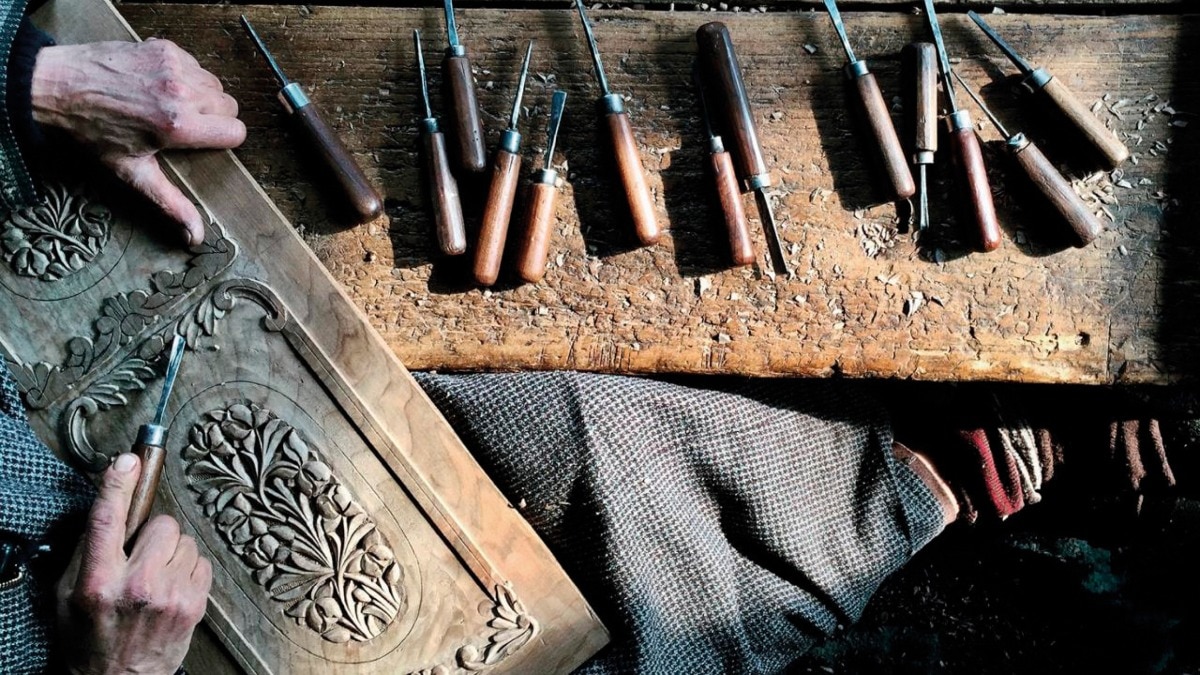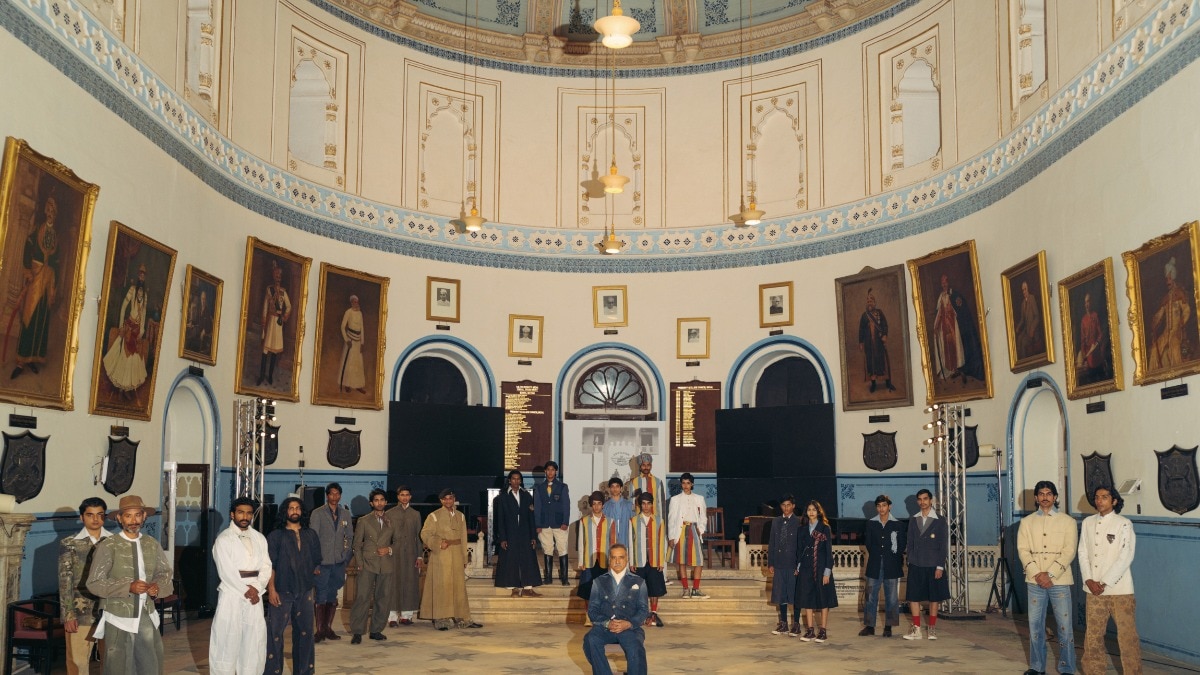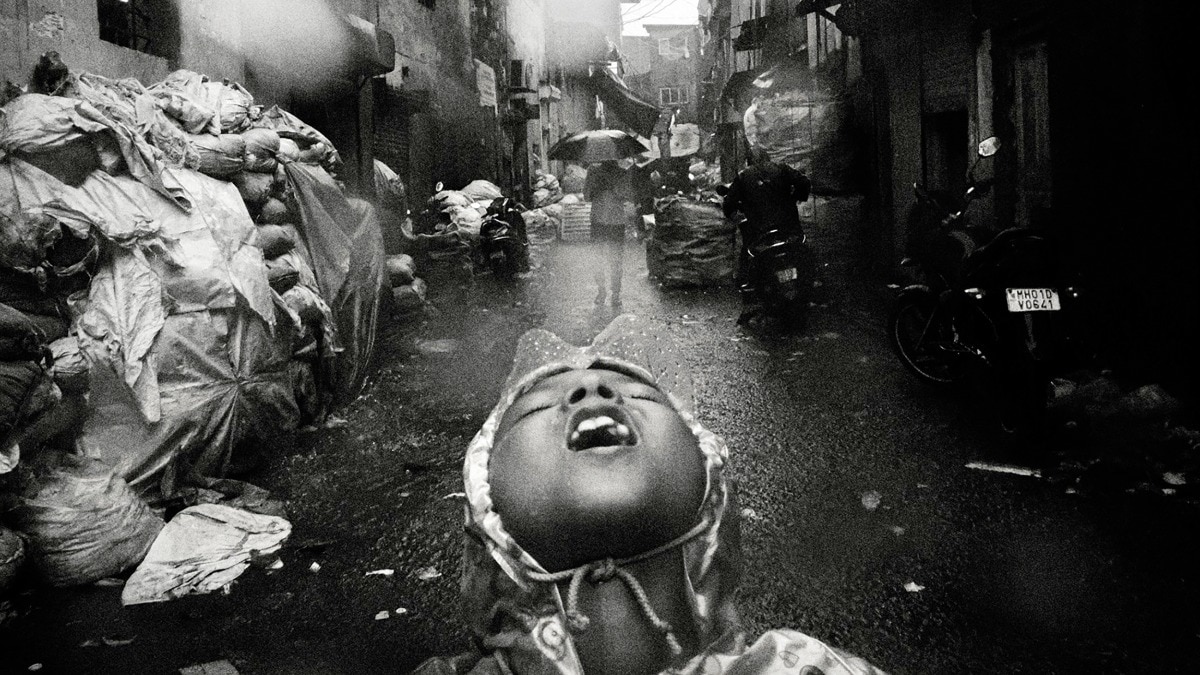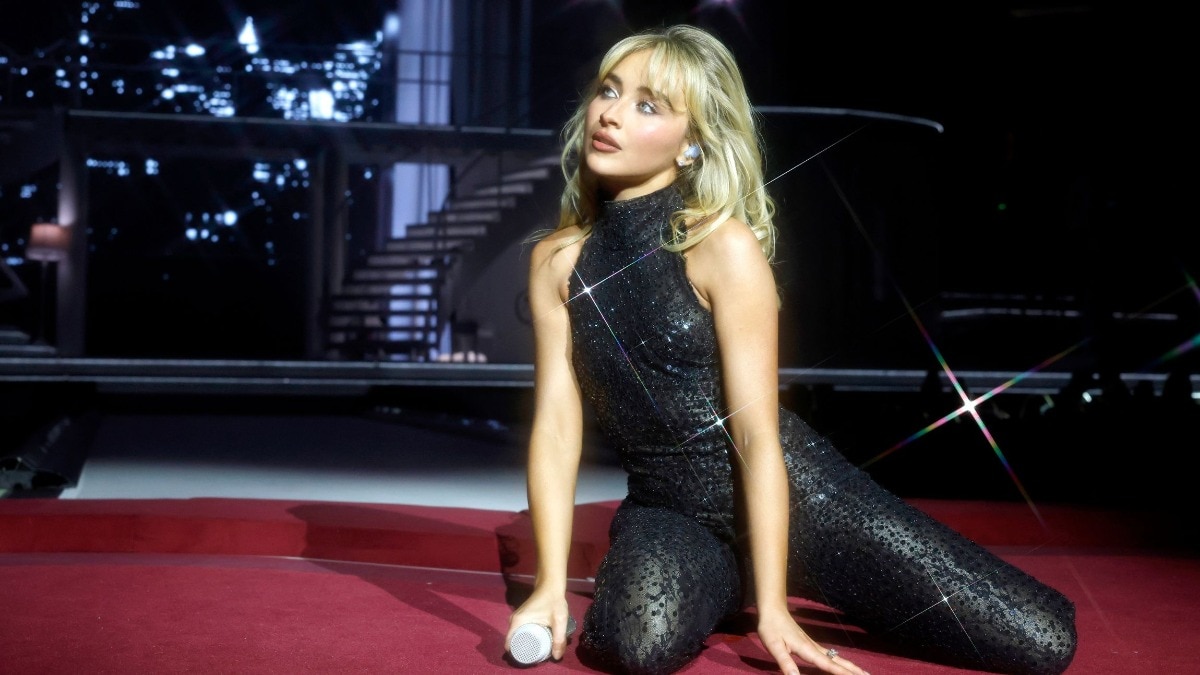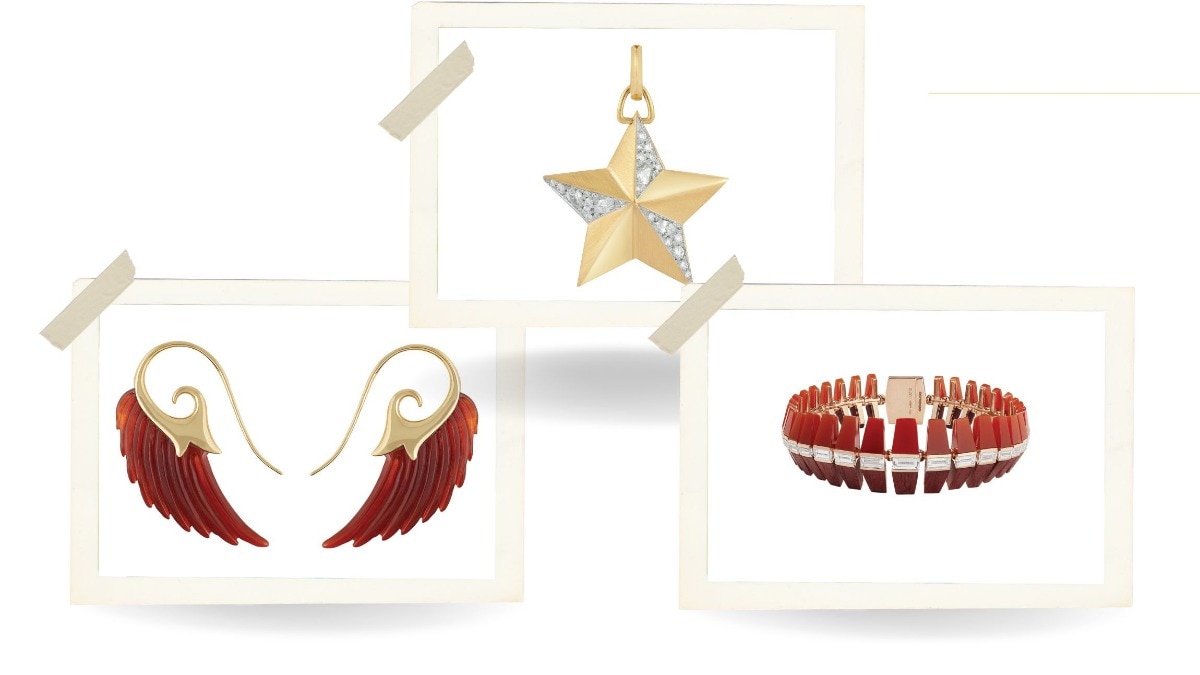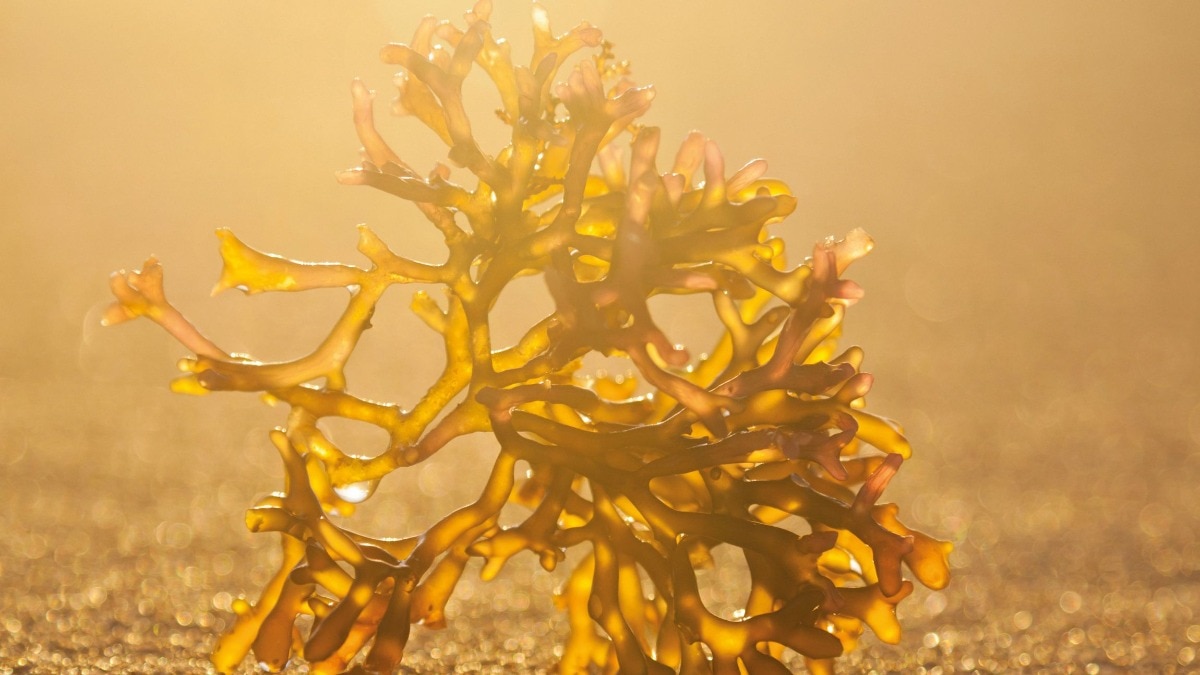Ayo Edebiri, Melanie Lynskey, and Sharon Horgan on making prestige TV with a twist, the magic of Oprah, and finding light in the darkness
Ever wonder what keeps actors and storytellers engaged and excited?


Since the late 1990s, we’ve been in the era of “prestige television,” so named for the number of highly acclaimed, internationally successful TV shows created during this time. From The Sopranos to Breaking Bad to Game of Thrones, the period has been defined by long-running series that dominate in viewership, critical reception, and award wins. But now, in a moment when there are more streaming platforms than ever and, subsequently, an onslaught of shows, viewers are faced with an excess of choice in an oversaturated market.
The Bear, Yellowjackets, and Bad Sisters, all Emmys contenders this year, have managed to stand out from the rest for the exquisite tone they have been able to strike, somewhere between comedy and drama, as they capture the tensions, farces, and struggles of modern life. The hilarious, deeply thoughtful actresses who help lead them lend levity and endearing portrayals of complex women to plotlines that, at times, can be downright macabre.
In The Bear, comedian, writer, producer, and actress Ayo Edebiri—who was nominated for an Emmy for Outstanding Supporting Actress in a Comedy Series—stars alongside Jeremy Allen White as an ambitious young sous chef who helps bring order and tenacity to a run-down family restaurant trying to get back on its feet. Tempered by Edebiri’s cool head (relative to those of her fellow characters) and the intimate moments of emotional connection she brings, the show is a meditation on the high-pressure restaurant industry and the claustrophobic pressures that come with it.
Bad Sisters and Yellowjackets are decidedly different in tone and format. Both feature ensemble casts made up almost entirely of women who must rally together to overcome sinister circumstances.
The former was co-developed by Irish actress, writer, director, and producer Sharon Horgan, who earned nominations for both Outstanding Lead Actress in a Drama Series and Outstanding Writer for a Drama Series for her work on the show. A riotously funny black comedy, it centers on five sisters—played with brilliance by Horgan, Eve Hewson, Anne-Marie Duff, Eva Birthistle, and Sarah Greene—who are each trying to kill “the Prick,” the abusive and sadistic husband of the second-oldest sibling.
Yellowjackets, starring Melanie Lynskey (also of The Last of Us fame) and ’90s icons Juliette Lewis and Christina Ricci, takes an even darker turn as it follows a New Jersey high school soccer team that, after its plane crashes on the way to a tournament, is forced to survive the Canadian wilderness by any means possible—cannibalism included. Lynskey earned a nomination for Outstanding Lead Actress in a Drama Series for her work on Yellowjackets, as well as for Outstanding Guest Actress in a Drama Series for her role in The Last of Us as the leader of a postapocalyptic revolutionary movement.
Here, Edebiri, Horgan, and Lynskey discuss the twisted allure of their off-center shows and what keeps them engaged and excited as actors and storytellers.
Sharon Horgan: What are your favourite kinds of projects to work on? How do you pick a script?
Melanie Lynskey: Both The Bear and Bad Sisters are dream shows for me because I love things that are dramatic but also have comedy. Both of your shows are so funny. On Bad Sisters, there were times when I was watching where I was just like, “Do they need another sister?” I’m practicing my Irish accent. But I just choose things based on a weird instinct.
SH: With Bad Sisters, I started getting interested in telling stories through genre, like horror or thriller. It feels like you can deliver everything you want to talk about but you’re disguising it a little. But I don’t know that I always 100 per cent trust my instinct. And it’s a bit annoying, because if you’re show-running something, you’re always having to think about everything. People expect you to constantly trust your gut or just have answers. And in actual fact, I always find that I rely on other people’s opinions. I have my own instinct or taste, and then I sometimes feel like, “But I could be wrong!” I wish I didn’t have that, but I think it’s also good.
Ayo Edebiri: Well, I feel like if you didn’t have that, you might be a sociopath.
SH: Or a man.
AE: And where those two circles intersect, who can say? But to me, that’s the sign of a good leader. I love when I work with a director and I’m like, “You have a sense of what you want. You know your vision. That doesn’t waver.” But they still are collaborating. They are still asking people their thoughts and their opinions, because that’s when a project can shine. We’re not just objects. …Who are some of the women in TV that originally inspired you?
SH: Maybe this is a weird answer, but Roseanne Barr. When I was watching her sitcom Roseanne back in the day, I thought it was the greatest thing. There was so much heart in it; it had so many big laughs and extraordinary actors. It was quite an inspiration seeing a show like that, named after the woman at the heart of it. It sort of hearkened back to I Love Lucy, The Mary Tyler Moore Show, and Rhoda. I also loved UK comedians like Dawn French and Jennifer Saunders and women who looked like they were having a ball. Also, Tracey Ullman—just watching her be so funny in her own sketch show. She always looked like she was really in charge. And then Tina Fey and Amy Poehler. I remember falling in love with those two and just thinking, “Oh, you are the funniest people in the world. You are so beyond talented but also smart and look like the kind of women who don’t take any shit, but not in a way that means you’re a ball-breaker.” And Goldie Hawn. I still do find her one of the best out there. What about you, Melanie?
ML: God! So many good answers there. When I was a child, I really loved Thirtysomething. It was my favourite show. The women felt very real to me, and it was very naturalistic. And then, when you were talking about Roseanne, I just was thinking about Laurie Metcalf and just women who seemed like women. Also, Dawn French and Jennifer Saunders did so many crazy, outlandish, silly, silly things. With Dawn especially, there was something about her that made me laugh so much.
AE: I definitely agree with Tina Fey and Amy Poehler, and then also Rachel Dratch. I felt really relieved seeing somebody who was so willing to commit to the bit and not be afraid to look like an idiot. That was freeing. I loved Living Single growing up. All the women on that show inspire me, like Erika Alexander, Kim Fields, Kim Coles, and Queen Latifah. This is so cheesy, but Oprah. I have so many memories of watching Oprah with my mom after school and really feeling united with the country. Her show was such a window into culture at large for me because I grew up pretty religious; I was sneaking a lot of TV. But that was one of the things that I could unabashedly watch. I felt like, “Oh, wow! You can really be in people’s homes and make them feel something. And that’s very cool.” I know there are people who exist who don’t like Oprah, but I have no interest in them.
ML: I don’t understand that, even slightly. I would watch that show every single day. I met her once, and she hugged me, and I instantly burst into tears. She didn’t seem surprised.
AE: She was like, “Yeah, this happens every three hours.” I think another icon that I’d be mad with myself if I didn’t say is Cree Summer, who was on A Different World and has done so much voice acting. I feel like people in my generation know her voice instinctively. She played Susie on Rugrats and Numbuh 5 on Codename: Kids Next Door. She was one of the first Black women to really break through into voice acting in such a massive way. To me, she represents the freedom of voice acting, because it doesn’t matter what your identity markers are. You have a voice, and you can play anything from a little kid to a flying dog.
ML: If you could have a role on any other TV show, either currently running or from the past, what would it be and why?
SH: Wow! Melanie, do you want to go first?
ML: I did just say I would be the long-lost sister on Bad Sisters. I mean, honestly. There’s some of those scenes where all of you are together and I’m just like, “Women!”
SH: It’s the same actually for Yellowjackets and The Bear. There’s something about being in a show that is so completely an ensemble that makes you not want to just be out there on a limb anymore. It’s all about the relationship and the chemistry of a big group of people.
ML: I love the magic that happens with particular people. Sometimes I would get to do a little scene with Juliette (Lewis) in Yellowjackets and I would just be like, “Oh, it’s like fireworks.” I also love Severance.
SH: I was going to say Succession. I was actually asked this question before, and I said, “Oh, well, Succession.” And then someone smarter than me answered the question and said, “I would never want to be in my favourite show, because how can I watch? How can I enjoy it?” I was like, “God! That’s totally right.”
AE: Maybe this is just the little comedian in the back of my head, but I got to do an episode of I Think You Should Leave; I love doing stuff that’s just stupid. And with the highest respect, it’s so dumb. I also really love The Righteous Gemstones. It’s so silly. But having grown up really religious, there are so many things about it where I’m like, “This is really true,” and it gets to the nuggets of the hypocrisies in a lot of big moneymaking churches.
SH: What film directors would both of you most like to work with? Do you think about things in those terms?
AE: Yeah. Let’s see if they read this conversation. I really love a lot of foreign films. I love Bong Joon Ho’s movies. Something like that would be really sick.
SH: I am a big fan of Ruben Östlund, from Force Majeure on, really. That all looks like fun.
ML: I did a series called Mrs. America, and Janicza Bravo directed one of the episodes. I love her movies. I had this working relationship with her that was so dreamy. I always feel that a good director is like a good therapist, where they tell you something that unlocks it for you. Her notes were always very specific. She’s really funny and wants the day to go quickly, which I always enjoy. So, since that episode of Mrs. America, she’s been a dream of mine to work with again. Also, Yorgos Lanthimos and Christopher Guest; I’ve always had a dream of doing a Christopher Guest movie because I love improvising.
SH: Melanie, you’ve had an extraordinary career, and it feels like you’re only now getting your due. How does that feel?
ML: My dream for myself was always to be a working actor, and I’ve been doing that for such a long time. So I always have felt really proud of my career. It’s funny—over the last few years, people have been like, “Here you are!” And it’s like “Yeah. Thank you.” I mean, it’s nice to have confirmation that people are watching things. I certainly have done a lot of independent movies that have just fluttered away in the breeze, and I’ve been like, “Oh, I wish someone had seen that.”
SH: It’s funny, because it always happens to the best actresses. Do you know what I mean? Like when suddenly everyone was watching Carrie Coon, or suddenly everyone was watching Ann Dowd. It’s like everyone goes, “Fucking hell! Where have you been?” I mean, obviously, she’s been working her entire life, but there are suddenly roles coming along that are noteworthy or capture the imagination. The Last of Us captured everyone’s imagination, as did Yellowjackets. … Ayo, what’s it been like having all eyes on you all of a sudden?
AE: It’s almost this thing that feels like your life is being reframed, like there’s something different between your lived experience and how people are perceiving you or something. I can clock in my head that I’m going to award shows that I’ve never gone to before, or I’m getting photos taken of me where I’m all dolled up, and that hasn’t happened before. It’s exciting, but it’s also somehow the least-interesting part. The best part of it all is that I get to work on a show that I love with people who I think are so cool and so smart.
SH: You’re 100 percent right. It’s by far the least-interesting part. It’s also the most stressful part. I don’t know if it’s just me, but this is where I’m happy: on a bed with my dog.
AE: That mental math is strange, especially because I’m a kid of the internet. I’m so aware of the tall-poppy syndrome, where we’ll build up a celebrity we love, like Anne Hathaway, until she’s smiling too much or she says something too funny.
SH: Until her head is raised a little too high above the parapet.
AE: Right. Then we have to cut it. But then all of a sudden, she’s back and we love her, and we were waiting for her. Why was everybody so mean to her? Like, who did that? It couldn’t have been us.
ML: Misogyny is so scary and so exhausting, and I’m so tired. And there is that horrible thing of “Is it coming for me?” It’s very comfortable being underrated.
AE: Coming up, there was this fear of “Oh, no, I’m going to be the only woman in the room. Oh, no, I’m going to be the only Black person in the room.” Or, dare I say, both at the same time. Then there’s the fear of “Oh, no, how will it be with other women? Will there also be this scarcity mentality?” It’s been such a relief, feeling that that’s actually not true and that there is room for all of us to support each other and uplift each other and do our own things.
ML: Sharon, you are known for your work in dark comedy. Do you think that is more of a UK sensibility? Why does that genre speak to you and inspire you?
SH: In the UK, you would see shows on the BBC or Channel 4 that didn’t have to have happy endings. Things didn’t need to be tied up with a bow. Characters didn’t need to learn a lesson or ask for forgiveness. Bad Sisters is a drama that leans into the comedy, and I actually think people in the U.S. are very comfortable with that kind of thing, whether it’s Fargo or Succession or The Sopranos or Better Call Saul. They’re great dramas that are allowed to be funny. …Was there a lesson that each of you learned from working on The Bear and Yellowjackets? Or a favourite memory you have from filming?
AE: I realised close to the end that “Whoa! I’m learning through positive experiences,” which I feel like doesn’t happen all the time. I found myself being like, “Whoa! I’m enjoying this. Why am I enjoying this? Why do I like this leadership structure or how people are communicating with each other? And how can I bring that energy, those lessons, to the things that I’m working on in the future?”
SH: I know exactly what you mean. Although I think you can have a negative experience, and the greatest thing you can take from that is how not to behave moving forward. My answer’s quite basic. We had this scene in episode six of Bad Sisters where we were trying to drown “the Prick.” It was me and Eve Hewson and Eva Birthistle and Sarah Greene. We were hiding under a bed while he was Rohypnoled, so he was not really conscious, and he was taking a piss in the wardrobe. I’ve never laughed so much. And it was just such a lovely feeling to be beside those three girls, just laughing our heads off. Every time we try to not laugh in the scene, it was real, because we were all feeling that.
ML: There were some moments on Yellowjackets where I just looked around at this group of women and I was like, “This is amazing.” I couldn’t have conceived of this in my 20s, that we’d all be at this stage in our lives and we’d all be doing something so fulfilling.
This piece originally appeared in the September's 2023 print edition of Harper's Bazaar USA.

